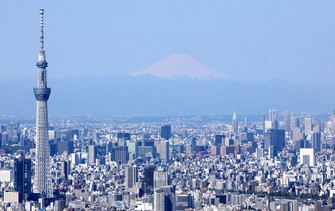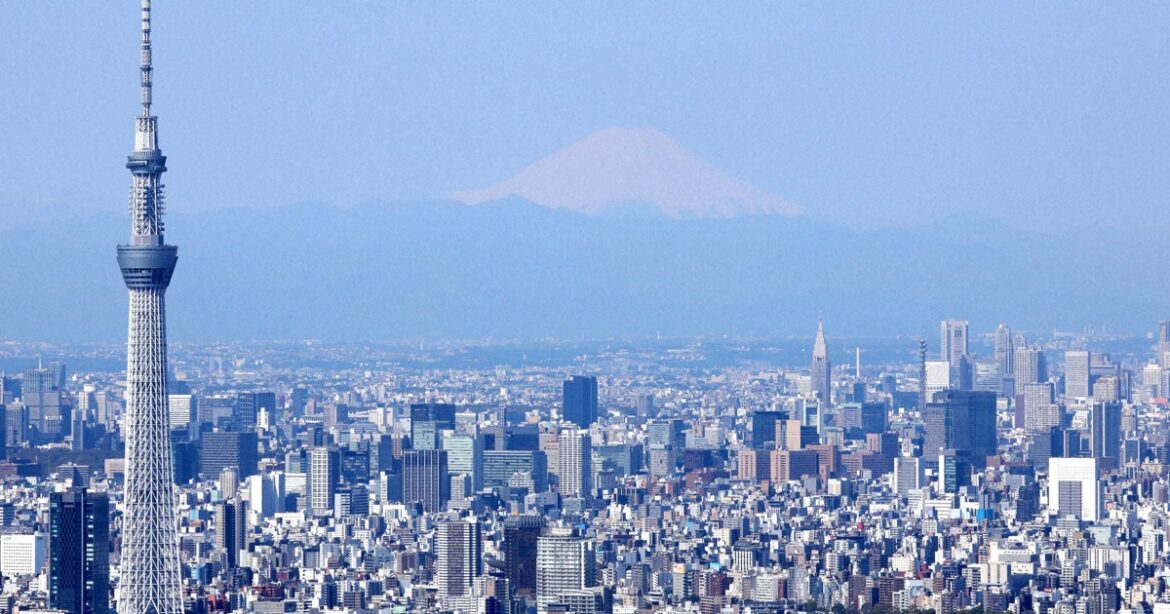
This April 25, 2020 photo taken from a Mainichi Shimbun helicopter shows Tokyo Skytree, left, with Mount Fuji in the background. (Mainichi)
TOKYO (Kyodo) — Japan’s economy grew an annualized real 2.2 percent in the April-June quarter, faster than an initially reported 1.0 percent, on stronger private consumption and inventories, government data showed Monday.
The revised figure marked the fifth consecutive quarter of growth, but many economists expect the full impact of higher U.S. tariffs to be felt in the current quarter and beyond, while rising prices will continue to weigh on consumption.
Real gross domestic product, adjusted for inflation, expanded 0.5 percent from the previous quarter, compared with the preliminary reading of 0.3 percent, the Cabinet Office said.
GDP is the total value of goods and services produced in a country.
Private consumption, which accounts for more than half of GDP, gained 0.4 percent in the April-June period, revised up from an earlier reported 0.2 percent, driven by dining out and game software.
Private-sector inventories, which reflect companies’ production activities, negatively affected GDP by 0.04 percentage point, an improvement from the preliminary figure of minus 0.3 point.
In contrast, capital investment, a key component of domestic demand, rose 0.6 percent, revised down from 1.3 percent, hit by weaker software investment.
According to the Cabinet Office, exports increased 2.0 percent, unchanged from the initial figure.
The latest GDP data was released days after U.S. President Donald Trump signed an executive order formally implementing a trade deal with Japan.
Under the agreement reached in July, the U.S. tariff rate on automobiles from Japan will be reduced to 15 percent from the current rate of 27.5 percent.
Economists said Japan’s car exports to the United States did not decline in volume until June as automakers absorbed tariff costs without raising prices, but shipments may start falling now that they have decided to hike prices.
Shinichiro Kobayashi, principal economist at Mitsubishi UFJ Research and Consulting, said private consumption will likely stay sluggish amid rising costs for rice and other food items, despite the upward revision for the second quarter of 2025.
“Japan’s economy is likely to fall into negative growth in the July-September quarter, as exports decline due to the Trump tariffs, while domestic demand is not strong enough to offset the impact,” Kobayashi said.
Nominal GDP grew at an annualized rate of 6.6 percent, faster than the preliminary reading of 5.1 percent.
(By Satoshi Iizuka)


AloJapan.com